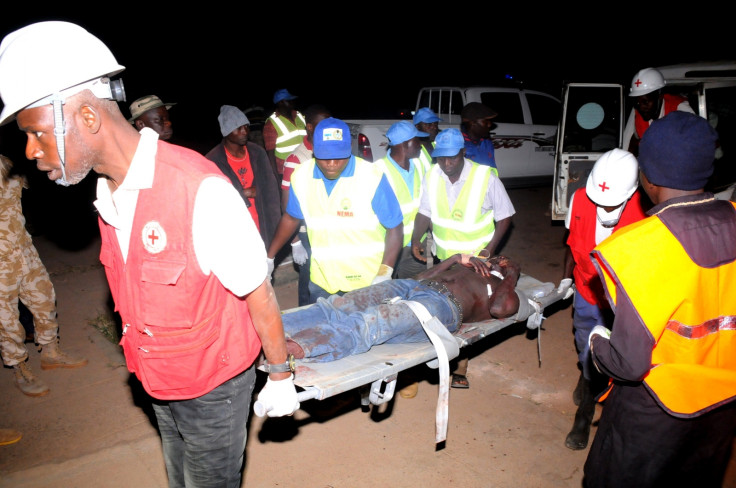Nigeria Boko Haram: Gombe mosque suicide attack kills two people

At least two people have been killed as a suicide bomber blew himself up outside a mosque in Northern Nigeria.
The incident took place in the city of Gombe, in Gombe state.
The blast left also another 14 people injured, some of whom were in critical condition, Reuters reported.
Who are Boko Haram militants?
Boko Haram, which fights against Western influence in Nigeria and aims to impose its version of sharia law in the country, declared an Islamic caliphate in Gwoza, along the Cameroon border, in August 2014.
The group has been raiding several cities in the north of the country in a bid to take control of more land.
Violence linked to Boko Haram's insurgency has resulted in an estimated 10,000 deaths between 2002 and 2013.
Three states, Adamawa, Borno and Yobe have been under a state of emergency since May 2013, due to Boko Haram's deadly attacks.
"We were holding prayers when we heard a loud explosion," a witness said. "We rushed out of the mosque. There were so many people injured on the ground."
Nobody has yet claimed responsibility but suspicions are likely to fall on terror group Boko Haram, which has recently stepped up its attacks throughout northern and central Nigeria.
The group, condemned worldwide for having kidnapped some 220 schoolgirls last April, captured 16 towns at the beginning of January and slaughtered at least 2,000 people, including women and children, in Baga town, Borno state.
The mass-killing was dubbed as "possibly the deadliest" committed by the terrorists, believed to have killed thousand of civilians since their insurgence began in 2009.
Experts have argued that the rise in Boko Haram's attacks is linked to the upcoming presidential election, which will be held on 14 February.
According to Norman Amidu, international analyst and senior consultant at iecoAfrica, Boko Haram has been used as a tool by people who are not happy with Goodluck Jonathan, the current Nigerian president.
"We need to consider two factors when we talk about Boko Haram: First there is the undeniable Islamic fundamentalism that is growing in the country. But there is also a political factor," he told IBTimes UK.
"There is a belief that there are some people behind Boko Haram and they use the group's insurgence to promote their agenda: they are unhappy with Jonathan and therefore they use terrorism to urge the president to step down so that a president from the north can be elected."
© Copyright IBTimes 2025. All rights reserved.






















